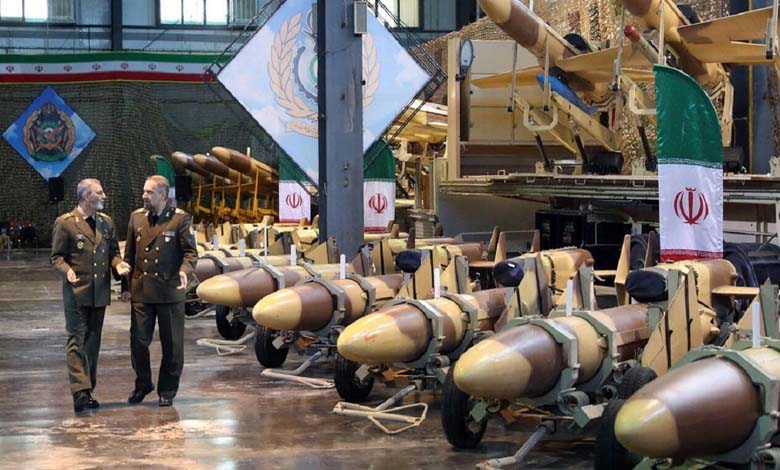CNN: Israel Preparing Potential Strike on Iranian Nuclear Facilities

According to CNN, new intelligence suggests that Israel is preparing a potential strike on Iranian nuclear facilities.
U.S. officials from former President Donald Trump’s administration told the network that recent intelligence indicates Israel is actively considering a military operation targeting Iran’s nuclear infrastructure.
-
Troubles and Crises: International Economy Affected by Iran and Israel Events
-
In Iran’s Eid Sermon: The U.S. and Israel Present with Warnings
Officials warned that such a move would violate Trump’s current diplomatic posture and could spark a broader regional conflict in the Middle East—something Washington has sought to avoid since the escalation of tensions caused by the Gaza war in 2023.
However, they emphasized that no definitive decision has yet been made by Israeli leadership, and there are deep divisions within the U.S. administration regarding the likelihood of an Israeli strike. Much will depend on Israel’s assessment of the ongoing negotiations between Washington and Tehran over Iran’s nuclear program.
-
“Surprise” in Israeli Attack on Iran: Advance Warning of Date and Targets?
-
Leaks Reveal Israeli Preparations to Strike Iran and U.S. Concerns
A source familiar with the intelligence said: “The likelihood of Israel striking an Iranian nuclear facility has increased significantly in recent months.”
He added that this likelihood is fueled by concerns that Trump might strike a deal that does not eliminate all of Iran’s enriched uranium stockpiles.
These mounting concerns are supported by both public and private statements from senior Israeli officials, intercepted Israeli communications, and observed military maneuvers that suggest preparations for a possible attack.
-
Details of Iran’s “Recruitment” of an Israeli and His Girlfriend to Carry Out an “Assassination” Operation
-
In Case of an Israeli Attack: Source Discusses Iran’s Plan and Target Bank
The Israeli embassy in Washington declined to comment on the report.
A senior U.S. official confirmed that intelligence-gathering efforts have intensified in anticipation of possibly supporting Israel, should it move forward with a strike. However, another source familiar with Trump’s strategic thinking noted that the U.S. will not assist in any attack unless Iran provokes a major incident.
The same source stressed that Israel lacks the capacity to destroy Iran’s nuclear program without direct U.S. support, including airborne refueling and bunker-busting bombs—a conclusion supported by previous American intelligence assessments.
-
Can Hezbollah stand up to Israel? Iranian President expresses doubts
-
Iran’s Secret Document Ignites a Dispute within the Israeli Military and Netanyahu’s Office
These revelations come as the U.S. continues its diplomatic push for a nuclear agreement with Iran. Washington has made non-enrichment of uranium a clear red line in these negotiations.
Last Sunday, Steve Witkoff, Trump’s special envoy to the Middle East, stated during an interview with ABC: “We’ve drawn a very clear red line — uranium enrichment. We can’t allow even one percent capacity.”
He added: “From Trump’s perspective, everything begins with an agreement that bans enrichment. Because enrichment leads to weaponization. We won’t allow a bomb to be built.”
-
Will Iran Abandon Its Revenge Against Israel in Exchange for a Gaza Ceasefire?
-
Leaks from the Secret Meeting: Iran Refuses to Support Hezbollah and its Iraqi Militias Against Israel
Iran responded swiftly. The semi-official Tasnim news agency quoted Iranian Foreign Minister Abbas Araghchi, who stated: “Unrealistic expectations are stalling the negotiations. Enrichment in Iran is not something that can be stopped.”
He added that Witkoff “is completely disconnected from the reality of the talks.”
President Trump had openly threatened military action if his administration failed to reach a nuclear deal with Tehran. In a letter reportedly sent to Supreme Leader Ali Khamenei in March, Trump set a 60-day deadline for diplomatic success. That deadline has now passed.
-
Intense Cyber War Between Israel and Iran
-
Washington Tests Military Capabilities Amid Escalation Between Israel and Iran
A senior Western diplomat who recently met with Trump revealed that the president is giving negotiations only a few more weeks before considering military options. Still, the current White House policy remains focused on diplomacy.
This situation has placed Israel in a difficult position, said Jonathan Panikoff, a former U.S. intelligence official specializing in the region. Israeli Prime Minister Benjamin Netanyahu is under dual pressure: to reject any U.S.-Iran deal deemed inadequate, and at the same time to avoid straining his relationship with Trump, especially after recent disagreements on key regional security issues.












